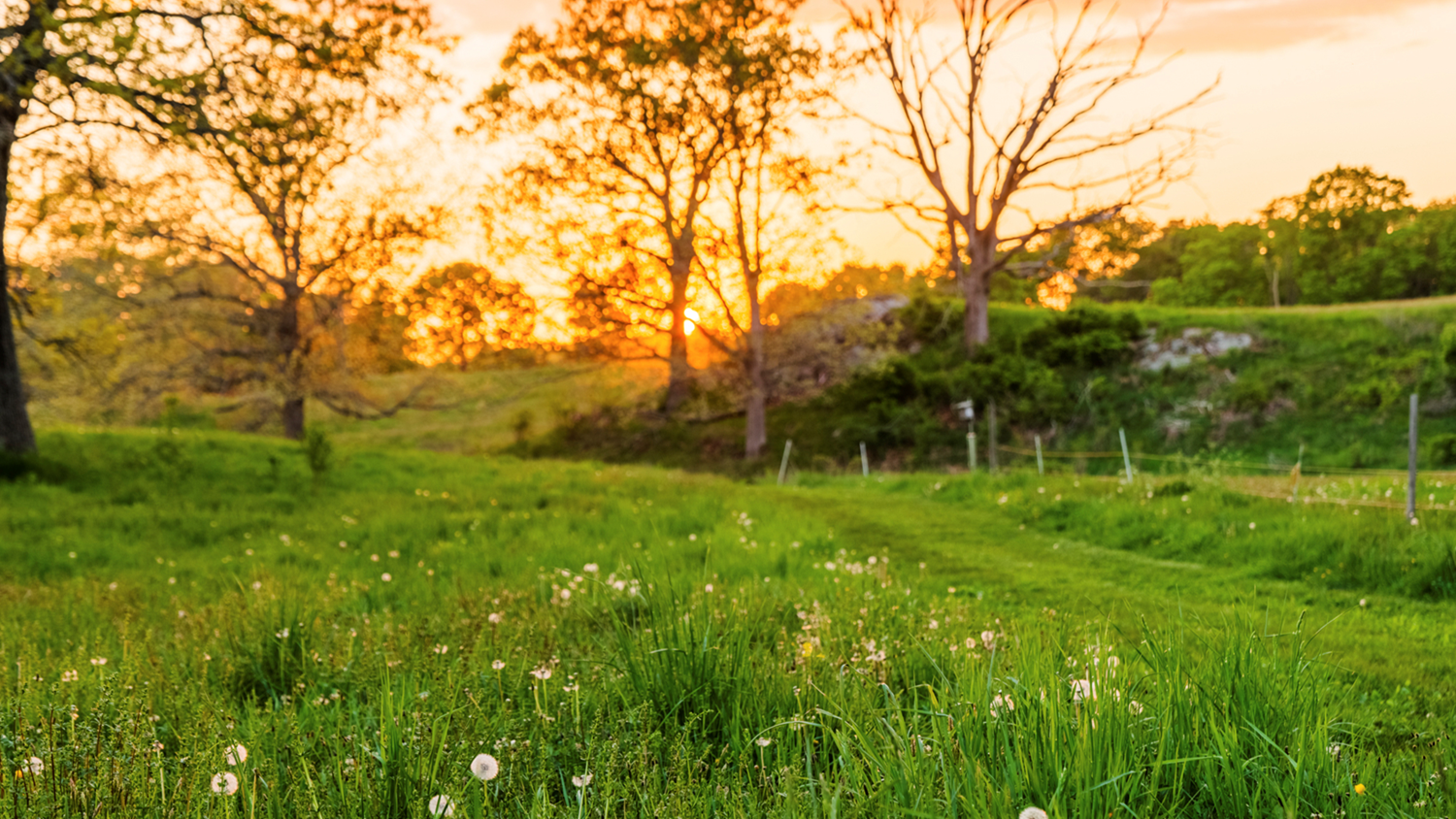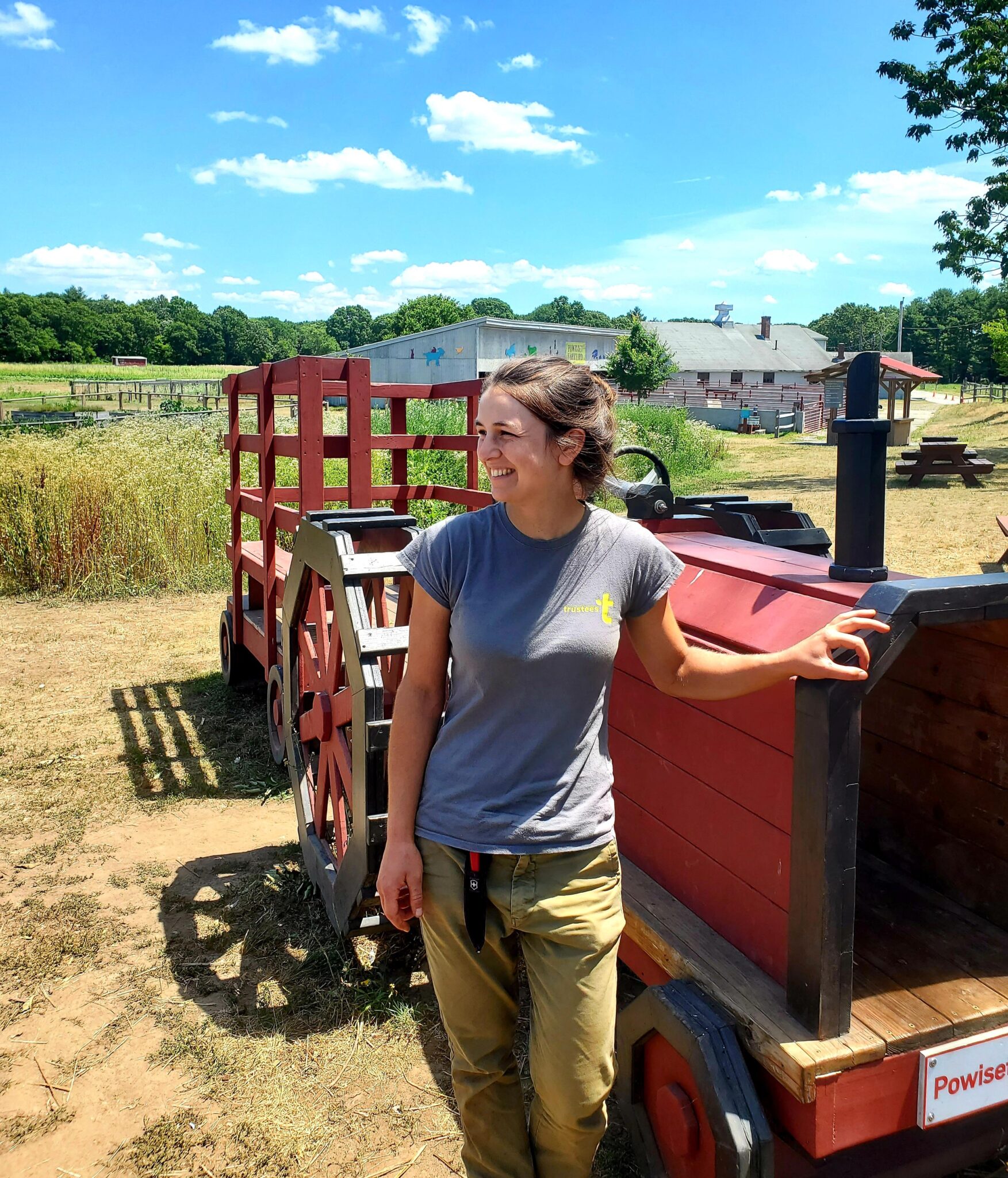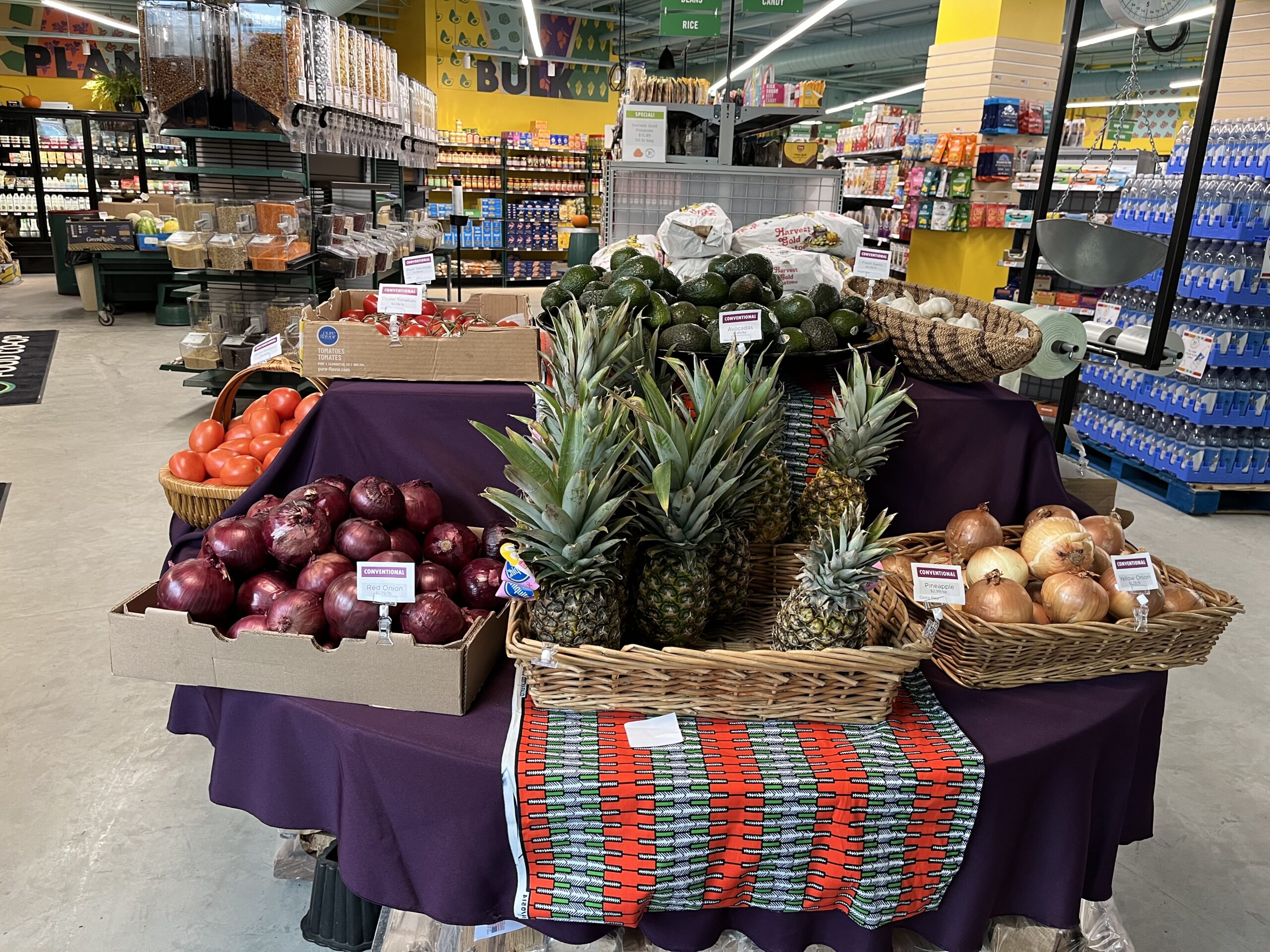
All working farms are agro-ecosystems, where agricultural production relies on and impacts the broader ecosystem. Since food production and ecological stewardship are two primary goals of Trustees land management and conservation strategy, we are working to balance both of these goals on our working farms. The objective is to sustainably produce healthy, local food while promoting biodiversity and healthy, functioning ecosystems.
Farmers and ecologists have highly specialized and technical points of view on how working landscapes function and how to achieve their own priorities. Occasionally, the disconnect between these two different types of understanding can lead to less-than-ideal results. Strictly separating farms into conservation vs. production acreage can lead to less perceived value for one type of land or the other, and our agroecological initiative seeks to bridge this specialist knowledge and manage the ‘gray’ areas. We are working to take advantage of existing ecological processes to improve agricultural productivity while at the same time minimizing tradeoffs between agricultural production and ecosystem functioning or biodiversity.
Central to this initiative is treating our farms as living laboratories. Our working farms are real production operations under all of the same stresses as independent local farms. As a non-profit organization managing abundant farmland, we have the opportunity to take some risks that family farmers simply can’t. In addition to applying what we learn to our farms, we can also share this with the broader public visiting our working farms as well as the farming community. As a start, we are expanding our existing ecological monitoring and pairing it with monitoring agricultural productivity and quality. This dual approach will help us prioritize which parts of our landscapes have high production and/or ecological value and provide a baseline or starting point for future experiments.
The first of these, a rotational grazing study, is underway at Appleton Farms in Ipswich. In New England, grazing lands make up a large portion of the non-forested habitat and support a unique community of plants, invertebrates, birds, and mammals that have been largely in decline since the 1800s. In our rotational grazing systems, cattle move through multiple small paddocks within any given week. Compared to continuous grazing, this method allows plants and soil to rest and recover following the disturbance. For this study, we are comparing different rotational grazing strategies to see their effects on vegetation productivity, weight gain, invasive and weedy species, grassland nesting birds, and soil health.
This is just the start of our experiments. We are also looking forward to testing warm season grasses for resilience, evaluating the quality of late-cut hay to expand habitat, and stockpiling hay to reduce the time cattle spend in winter confinement while protecting habitat. Outside of our grasslands, we are exploring methods to reduce tillage in our vegetable, herb, flower, and field fruit production, including the use of permanent beds and specialty perennial crops. We are also very interested in supporting native pollinators and beneficial insects by exploring the use of hedgerows and native buffer vegetation, especially around our waterways. Stay tuned!

Photo courtesy of Pilot Studio



